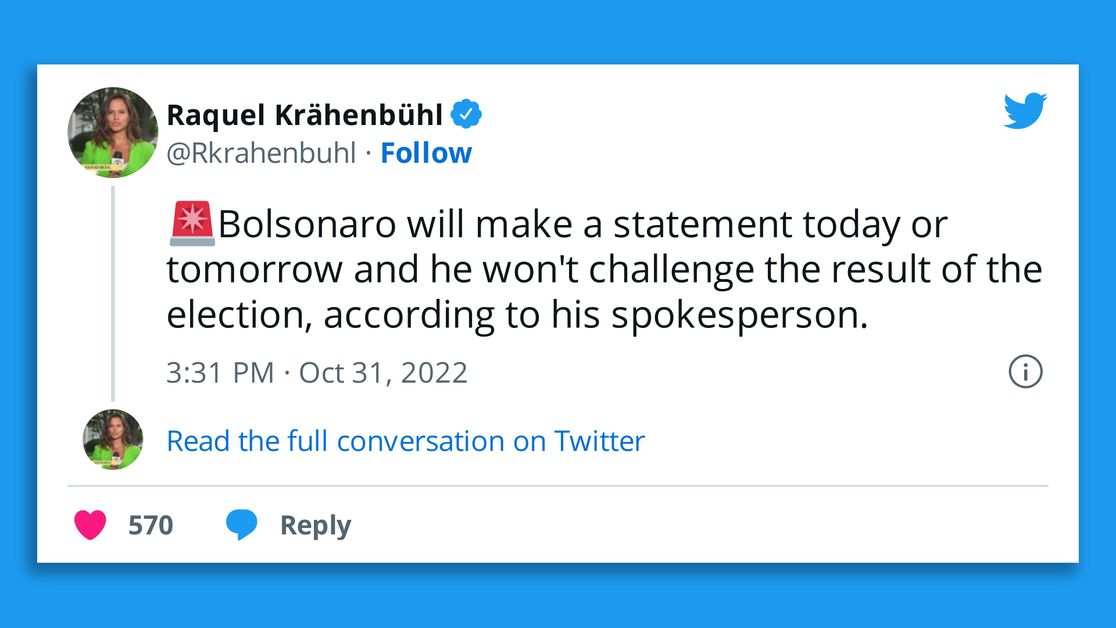| |
| |
| |
| Presented By Meta |
| |
| Axios Sneak Peek |
| By Alayna Treene, Hans Nichols and Zachary Basu · Oct 31, 2022 |
| 🎃 Welcome back to Sneak. Smart Brevity™ count: 1,075 words ... 4 minutes. Join Axios' Mike Allen, Alexi McCammond and Alayna Treene for a packed News Shapers event Wednesday at 8:15am ET here in D.C. - Guests include White House senior adviser Anita Dunn, deputy chief of staff Jen O'Malley Dillon, British Ambassador to the U.S. Karen Pierce, former New Jersey Gov. Christine Todd Whitman, and Voto Latino president and CEO María Teresa Kumar.
- Register here to attend in person.
|
| |
| |
| 1 big thing: The cease-and-desist election |
 |
|
| Illustration: Allie Carl/Axios |
| |
| Candidates from both parties are mobilizing their legal teams in last-ditch attempts to get their opponents' attack ads yanked off the airwaves, Axios' Alexi McCammond and Lachlan Markay report. Why it matters: In a midterm cycle dominated by attempts to paint the other side as extreme, the ads in question range from disputed to outright fabrications. But almost invariably, they focus on one of two major issues driving campaign messaging: crime and abortion. Driving the news: In the past week, two Republican Senate candidates — Eric Schmitt of Missouri and Joe O'Dea of Colorado — have blasted out cease-and-desist letters to TV stations they say are airing ads that misrepresent their views and records on abortion policy. The opposing campaigns say they stand by the ads. - Multiple North Carolina TV stations have removed Republican attack ads against former state Supreme Court chief justice Cheri Beasley, the Democrat running against GOP Rep. Ted Budd in the state's competitive U.S. Senate race, for improperly suggesting she has been lenient with sentencing in child pornography cases.
- In Texas, Democratic lieutenant governor candidate Mike Collier's campaign demanded stations pull an ad from Republican incumbent Dan Patrick, citing what it says are a host of inaccurate statements about his views on issues including immigration and policing. Patrick's team has stood by the spot.
In the New York governor's race, Republican candidate Lee Zeldin was forced to swap out a clip from an ad that showed crime scenes in Oakland, California — not in New York City as the narrator claims. - The family of a Black man killed by the NYPD has hired lawyers as they implore Zeldin to remove a clip from a different violent ad that implies the victim was holding a gun. Zeldin has thus far refused.
Between the lines: Under federal law, TV stations are not liable for defamatory statements in candidate ads. That means the legal threats aimed at such spots are generally futile — but they can still serve as a messaging device. - In Pennsylvania's U.S. Senate race, Republican Mehmet Oz's legal counsel has been in a battle with the Senate Majority PAC after the Democratic group blasted out ads suggesting Oz was involved in killing dogs as part of his past medical research.
- Oz's camp declared it succeeded in getting the spot pulled, trumpeting it as a victory against Democrats' "ridiculous lies." SMP disputes that the ads were "taken down" and has plans to air an "encore round" of the puppy campaign.
The big picture: This rising cease-and-desist phenomenon is the product of an "unprecedented" information environment, said Jennifer Stromer-Galley, professor at Syracuse University's School of Information Studies. - "We've gone from stretching the truth to just constructing an entirely new reality," she told Axios.
Share this story. |
    |
| |
| |
| 2. 🚨 Chilling interview with Pelosi attack suspect |
 |
|
| Photo: Stefano Costantino/SOPA Images/LightRocket via Getty Images |
| |
| The criminal complaint against the man charged with attacking Paul Pelosi, the 82-year-old husband of House Speaker Nancy Pelosi, refutes several of the right-wing conspiracy theories that circulated in the aftermath of the violent break-in on Friday. What's happening: An FBI affidavit — which includes an interview with the suspect, David DePape — debunks claims that Pelosi knew the attacker; that a third person let DePape into the home; and that DePape was a left-wing activist. DEPAPE stated that he was going to hold Nancy hostage and talk to her. If Nancy were to tell DEPAPE the "truth," he would let her go, and if she "lied," he was going to break "her kneecaps." DEPAPE was certain that Nancy would not have told the "truth." In the course of the interview, DEPAPE articulated he viewed Nancy as the "leader of the pack" of lies told by the Democratic Party. DEPAPE also later explained that by breaking Nancy's kneecaps, she would then have to be wheeled into Congress, which would show other Members of Congress there were consequences to actions. What's next: The Capitol Police is conducting a full review of the attack to determine what, if any, policy changes should be made to further protect lawmakers and their family members, Axios' Andrew Solender and Alayna Treene report. |
    |
| |
| |
| 3. 🇺🇸 First look: Progressives' closing argument |
| A coalition of progressive groups is launching a multimillion-dollar ad campaign to make a closing argument that sounds suspiciously like a Republican appeal from the pre-Trump era: Your fundamental freedoms belong to you, Axios' Hans Nichols reports. - The "Protect Our Freedoms" coalition, which includes some 30 groups, will start running ads tomorrow in a handful of contested congressional districts and key states, including North Carolina's overlooked but competitive Senate race.
The big picture: "We got everyone to agree on a common methodology and a message that tells a story instead of a laundry list of issues," said Tom Perriello, a former member of Congress who currently works with the Open Society Foundations. - "The contrast is effective," he said. "It tests through the roof with both mobilizing the base and persuading independents and undecideds."
Keep reading. |
    |
| |
| |
| A message from Meta |
| Building more efficient cities will be possible with the metaverse |
| |
 |
| |
| In the metaverse, urban planners will bring their designs to life and collaborate with engineers, architects and public officials in real time — paving the way for less congested cities. The metaverse may be virtual, but the impact will be real. Learn how Meta is helping build the metaverse. |
| |
| |
| 4. ⛽ Biden targets "windfall of war" |
 |
|
| Kyiv suffered sweeping blackouts today after Russian missile strikes took out the power infrastructure in Ukraine's capital city. Photo: Sergei Supinsky/AFP via Getty Images |
| |
| President Biden urged Congress to impose new taxes on oil companies if the industry doesn't take more action to lower fuel prices and boost domestic output, Axios' Ben Geman writes. - "Their profits are a windfall of war, a windfall from the brutal conflict that's ravaging Ukraine and hurting tens of millions of people around the globe. ... It's time for these companies to stop war profiteering," Biden said in remarks from the White House.
Why it matters: Biden knows elevated gasoline prices are jeopardizing Democrats' chances at the ballot box next week. He also knows new taxes on oil companies are unlikely to make it through Congress — and have virtually no shot if Republicans win control of one or both chambers. |
    |
| |
| |
| 5. 🇧🇷 "Tropical Trump" bows out |
| Brazil's President Jair Bolsonaro still hadn't conceded his defeat to leftist Luiz Inácio Lula da Silva as of the sending this newsletter, but a spokesperson has dispelled some of the months-long speculation that he would pursue a Trump-like effort to overturn the results of the vote. |
    |
| |
| |
| A message from Meta |
| Students will be able to explore outer space in the metaverse |
| |
 |
| |
| With the metaverse, students in a classroom will be able to travel to the depths of our galaxy, helping them get up close to the planets and gain a deeper understanding of how our solar system works. The metaverse may be virtual, but the impact will be real. See how Meta is helping build the metaverse. |
| |
| 📬 Thanks for reading tonight. This newsletter was edited by Zachary Basu and copy edited by Kathie Bozanich. |
 | | Are you a fan of this email format? It's called Smart Brevity®. Over 300 orgs use it — in a tool called Axios HQ — to drive productivity with clearer workplace communications. | | |










No comments:
Post a Comment